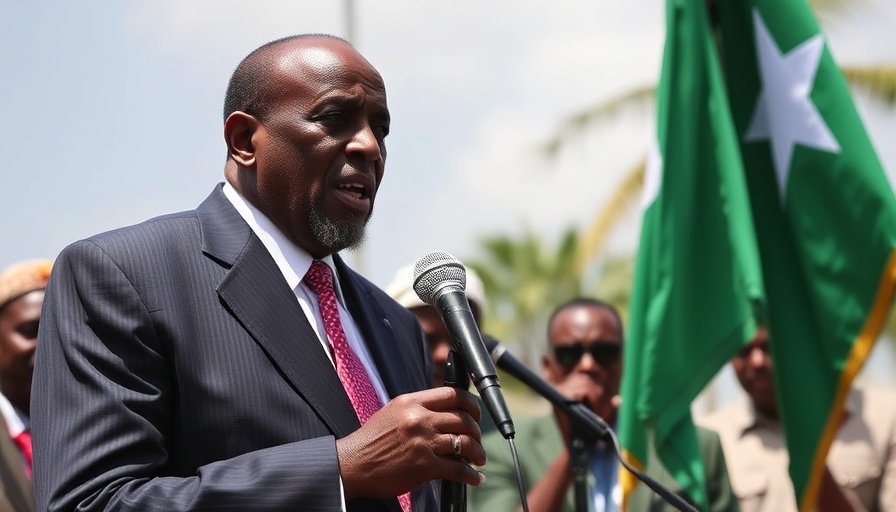
The Intricacies of Power Dynamics in Somalia
The recent feuds among federal states in Somalia demonstrate the complexities of political maneuvering under President Hassan Sheikh Mohamud. Known for his intricate political strategies, Mohamud's era is marked by significant challenges, including varying allegiances from regional states, internal conflicts, and external diplomatic pressures.
A Shifting Landscape of Governance
Amid ongoing disputes, the Somali federal system is under strain. Disagreements over resource allocations and political representation reveal deeper issues regarding the balance of power among federal and regional authorities. As such feuds are influencing the broader historical context of governance in Somalia, they highlight an urgent need for stable federalism.
Regional Impacts: Looking Beyond Somalia
The ramifications of Somalia's internal struggles extend beyond national borders, affecting the East African region. Neighboring countries closely monitor these dynamics, recognizing that instability in Somalia can lead to broader geopolitical consequences, including disruptions in trade and security cooperation initiatives.
Future Predictions: What Lies Ahead for Somali Politics?
The current disputes raise essential questions about the future trajectory of Somalia’s politics. Insufficient conflict resolution mechanisms may lead to intensified strife or possibly a consolidation of power in the executive branch, as more regional states might seek alliances to further their objectives. Business leaders and investors must be wary of these developments, which can impact foreign relations and the regional economy.
Tools for Strategic Engagement
Understanding the evolving political landscape is crucial for stakeholders, from policymakers to business investors. Engaging in dialogue, fostering diplomatic ties, and supporting localized governance can advance stability and economic opportunity. Investors should not underestimate the significance of peaceful governance, as it directly relates to financial markets and overall economic growth.
Conclusion: Critical Insights for Engagement
Somalia's federal state feuds send powerful signals about the current political climate under Mohamud’s leadership. For policymakers, researchers, and business leaders, staying informed is essential for effective engagement in Africa's complex geopolitical terrain. This nuanced understanding of Somalia's socio-political landscape is imperative for fostering sustainable development in the region.
 Add Row
Add Row  Add
Add 


Write A Comment